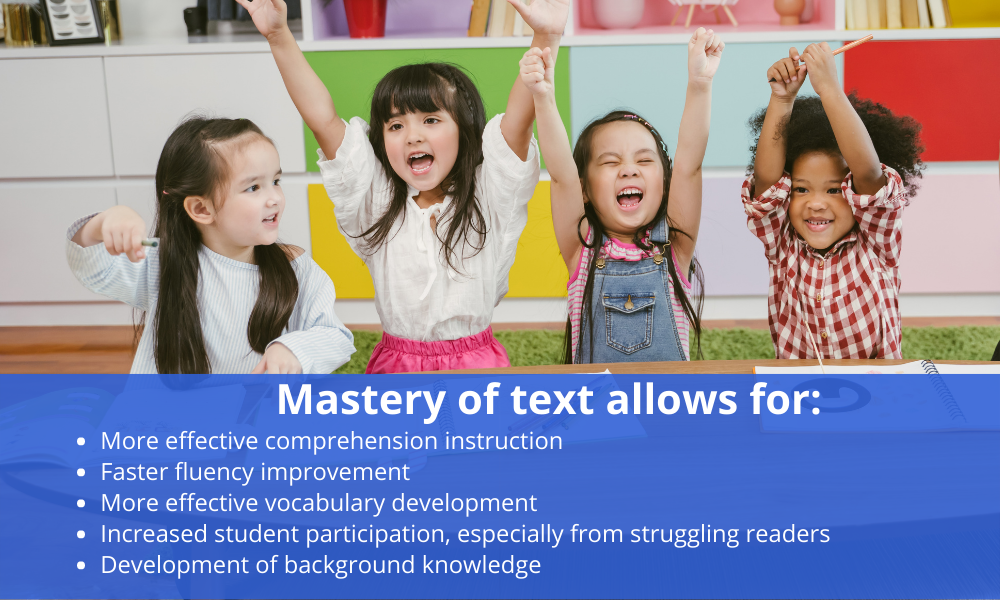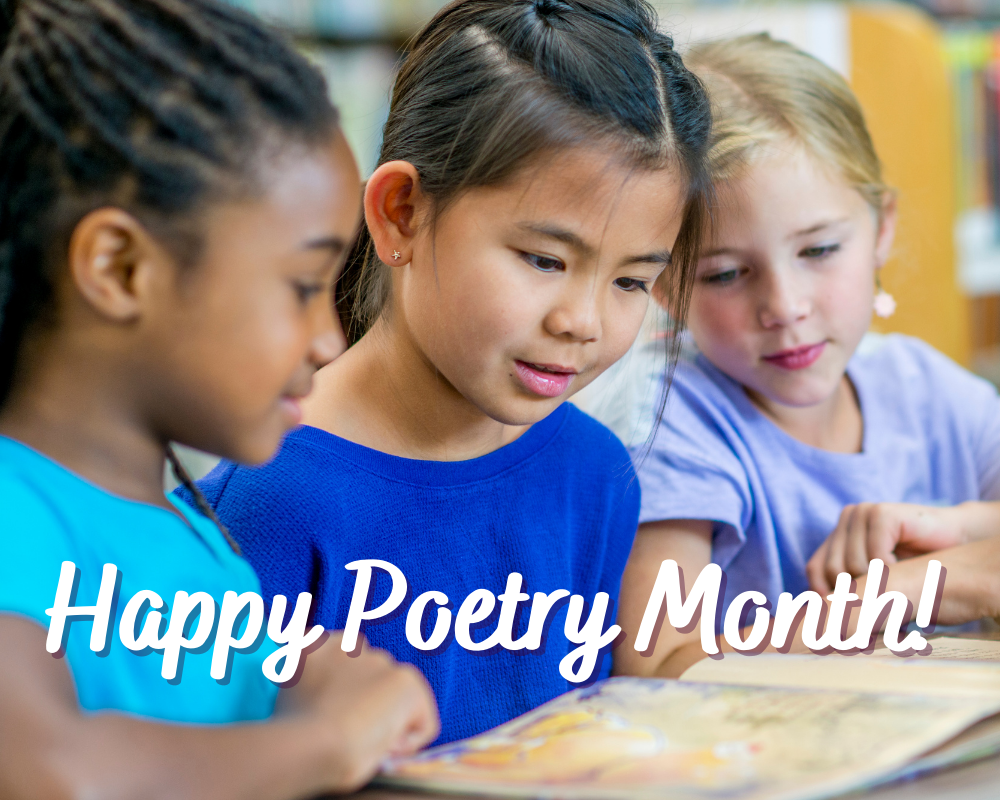Benefits of Mastering Instructional Text
Facilitating mastery of text makes reading instruction more effective
Most reading curricula organize lessons in one-week blocks to make planning easy for teachers. What they seldom do is communicate the benefits of helping students master the text before moving on. This can slow growth (something every school is trying to accelerate) in nearly every reading component; here’s why.

Comprehension: Teachers are lucky to have 30% of their kids master a story (read with excellent expression, a natural pace, and at least 98% accuracy) each week before moving on. Often, kids who master the text within the 1-week time frame are strong readers. Those who don’t are the children struggling week in and week out, creating a cycle of significant instructional disadvantage. A common weekly assessment outcome might be:
- 30-35% of your kids are proficient on the end-of-week assessment (most core curriculum measure only comprehension).
- 30%-40% of your kids score low to high partially proficient (PP); your bubble kids.
- 30-40% of your kids are more obviously struggling, scoring Unsat. to low PP.
It’s no coincidence that this is similar to the NAEP reading scores, which have further declined due to COVID. No matter how hard or smart we teach, kids who do not master a story will comprehend less than those who have. Without mastery, every reading instruction strategy is only partially effective. A student’s mastery of a text is directly related to their capability to understand, infer, contextualize, and retain information.
The higher the number of students who master the weekly text, the more effective every instructional strategy deployed in the classroom will be. Mastery of text sets the stage for reading success.

Fluency: It’s no secret that fluency improvement comes from working through text, as many times as it takes, to read accurately, with expression, and at a smooth, natural pace. This allows kids to think about what is being read rather than how to read. When done consistently, fluency improves. The National Reading Panel confirmed that repeated, assisted, and modeled reading develops fluency. The more it is practiced during instruction the more it transfers to automaticity, word recognition, and independent reading levels.

Vocabulary: Vocabulary strategies related to morphology (root, prefix. suffix) have examples of research support. That said, vocabulary is so far-reaching and limitless, that all readers come across words they do not know. I consider myself well-read, and it happens plenty. When that happens, I do one of two things. I keep going because, in the context of what I’m reading, I know what a word means. Or, if it makes no sense, even in context, I look it up. Honestly, even when I look it up, I may understand it in the short term, but unless I come across that word several more times in the near future it’s not going to stick and become part of my vocabulary. When kids master a text, they can more effectively be guided to develop contextual understanding of unfamiliar vocabulary, something they’ll need and use for the rest of their lives.

Participation: Every classroom has its high participators. Kids who confidently raise their hands and are ready to discuss topics. Often, these are the 30% of kids who are already strong readers, mastering a text after one or two times through. What would happen if we could find a way to help a larger percentage of kids master the text prior to group discussions? More kids would be comfortable participating. They’d have more confidence, more comfort, and ultimately, start to experience more success. Group discussions are one of the best ways to open up opportunities for critical thinking. Mastery of text fosters more confidence to participate.

Background Knowledge: What each student retains from a story or text is dependent upon interest, prior experiences, emotional connection, and if they fluently mastered the text. Kids who come to school with more experience with language and text almost always become better readers because they have more background knowledge. Research has been done on kids who have memorized (mastered) nursery rhymes in their early years. They have a significant advantage over kids who have not. Teachers cannot control a student’s prior knowledge, nor is it realistic to make every subject high interest when using a core curriculum. Background knowledge CAN be increased by guiding higher mastery of each text. Kids will feel more successful, be more willing to participate, remember more of what they read, and be more receptive to instructional strategies.
I’d enjoy connecting! Post on Twitter or Facebook if you have questions, comments, or wish to discuss strategies to improve reading.
Jeremy, teacher and founder of Lyrics2Learn






